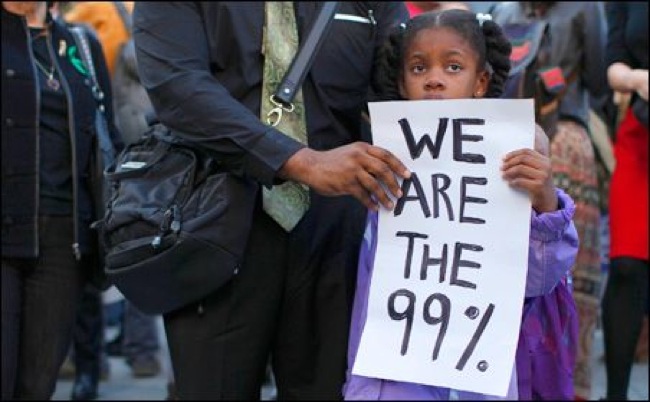Upward Mobility: It's a Race Thing

You don’t have to accept some of the anarchistic radicalism at Occupy Wall Street to admit that America is a country with high income inequality and low upward mobility. Some Conservatives have tried to obfuscate this reality but others are actually wrestling with it.
A recent issue of National Review is thankfully in this latter camp and has an essay by Scott Winship which goes over the research produced by the Pew Economic Mobility Project as well as recent work from the Brookings Institute.
The most important point that Winship makes is this: mobility might be low in America but the lack of mobility is most crushing at the lowest economic quintile, and particularly for African Americans.
Dealing with this low mobility should be a goal for policy makers, especially for conservatives who are bewildered at how 47% of Americans are unable to make enough money to pay Federal personal income taxes.
Here is the key fact, there is not enough mobility out of the bottom fifth of America’s lowest income quintile:
If being raised in the bottom fifth were not a disadvantage and socioeconomic outcomes were random, we would expect to see 20 percent of Americans who started in the bottom fifth remain there as adults, while 20 percent would end up in each of the other fifths. Instead, about 40 percent are unable to escape the bottom fifth.
Some conservatives and organization such as the Tax Foundation look at the same data and point out that this means that 60% are leaving the lowest income quintile. Surely that is a sign of upward mobility? Not necessarily. Winship notes the irony that those who are most aware of the lack of mobility are themselves in the most hardest to reach economic quintiles:
If you’re reading this essay, chances are pretty good that your household income puts you in one of the top two fifths, or that you can expect to be there at age 40. (We’re talking about roughly $90,000 for an entire household.) How would you feel about your child’s having only a 17 percent chance of achieving the equivalent status as an adult? That’s how many kids with parents in the bottom fifth around 1970 made it to the top two-fifths by the early 2000s.
The Americans who can't leave the bottom fifth are disproportionately African American as well, adding a racial dimension to this issue that often gets ignored in conservative literature.
In a follow-up interview with FrumForum, Winship expanded on some of the black-white family differences that exacerbate these trends:
-Concentrated poverty. Winship notes that “two-thirds of black children experience a level of neighborhood poverty growing up that just 6 percent of white children will ever see.”
This is a striking statistic which probably deserves a lot more attention than it is currently receiving. It probably goes a long way towards explaining why such a large part of American society is blissfully unaware of the hardships faced by those at the lowest end of the economic ladder.
-Family structure. While Winship says the evidence is “mixed”, it seems that divorce is more likely to encourage downward mobility for African Americans if they start in the middle of the income distribution.
-There are other factors which likely reduce mobility out over time, such as how African Americans are more likely to be born with a low birth weight.
It should be possible to get conservatives to at least be aware that more mobility is needed at the lower quintile and that America would benefit from being able to have a wider tax base and fewer Americans who make use of welfare services.

